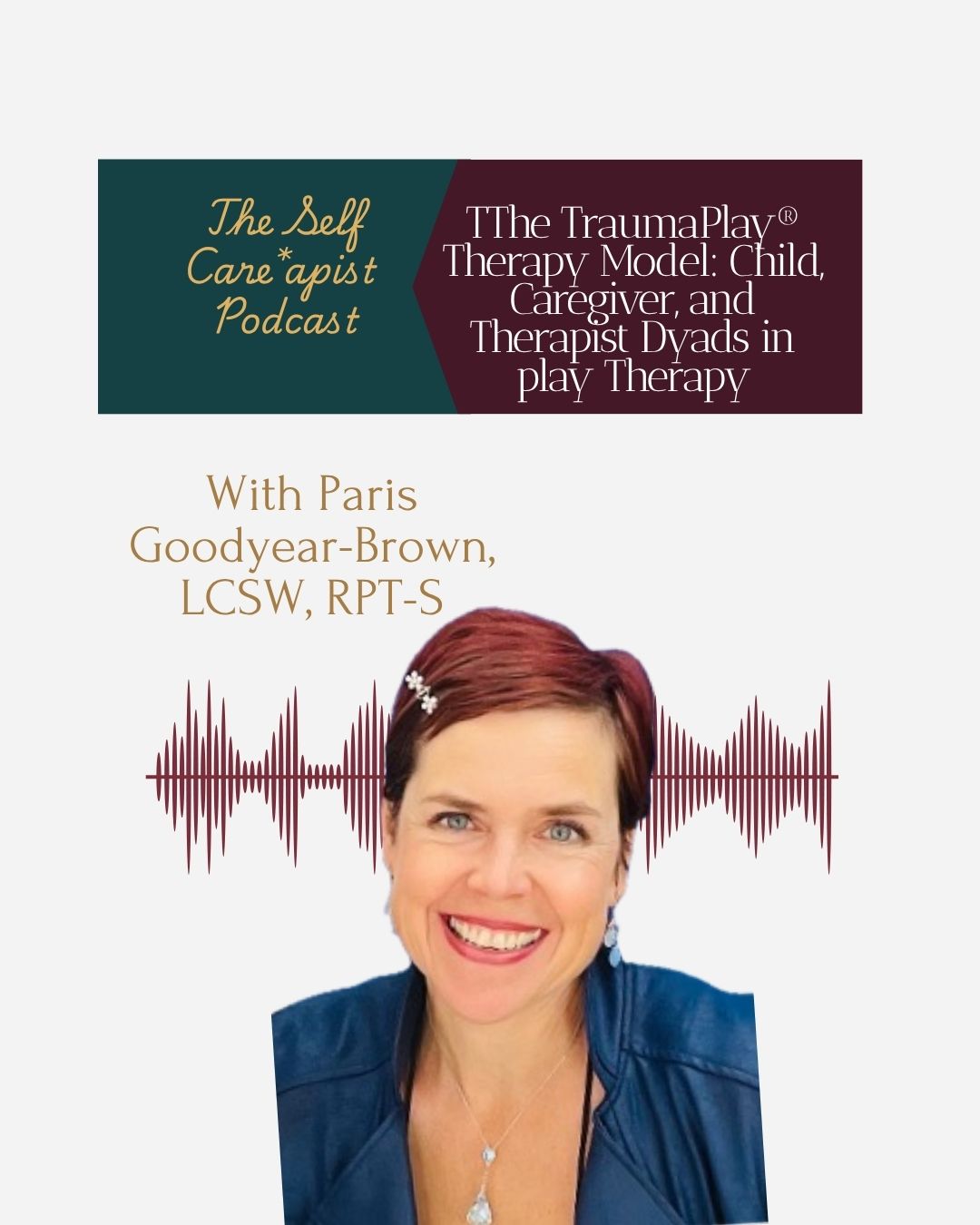TraumaPlay Therapy Model with Paris Goodyear Brown
In this conversation, I sat down with Paris Goodyear Brown, founder of the TraumaPlay® Institute, author, and internationally recognized trauma therapist to explore the principles behind the TraumaPlay therapy model. Designed to serve children and families impacted by trauma, TraumaPlay® is an integrative approach that invites therapists to move beyond rigid frameworks and instead attune to the moment-by-moment needs of the child and caregiver.
As a fellow trauma therapist and EMDRIA-approved EMDR consultant (Paris is as well), I’ve worked with families navigating complex histories of loss, anxiety, abuse, and developmental disruption. What stood out in this conversation was how TraumaPlay® gives space for each child’s story to emerge gently, while acknowledging the essential role of caregivers—and the therapist—as co-regulators in the healing process.
Moving Beyond One-Size-Fits-All Therapy
Paris shares her early journey navigating the extremes of play therapy: first, a deeply non-directive, child-centered model, and later, structured cognitive approaches like Trauma-Focused CBT. While both offered value, neither was enough for the complexity of trauma she encountered.
What evolved was the Traumaplay therapy model—a flexible, attachment-based, neuroscience-informed approach that incorporates:
- Bottom-up processing
- Dyadic assessment and integration
- Polyvagal theory
- Somatic awareness
- Narrative and symbolic play
Instead of relying on rigid protocols, TraumaPlay® offers guiding relational roles—safe boss, nurturer, and storykeeper—to help therapists ground their presence with both the child and caregiver.
Dyads Are the Heart of the Work in Traumaplay therapy model
At the core of the trauma play therapy model is the belief that healing happens in relationship. Paris developed the Nurture House Dyadic Assessment (NADA), a multi-session observational tool for understanding child-caregiver dynamics. One of the most powerful tools? The “baby story”—a moment where caregivers begin with: “When you were a little baby…”
These spontaneous stories reveal much more than attachment patterns—they uncover the caregiver’s capacity for delight, which Paris describes as a central force for change. Whether the story is warm, distant, or overwhelmed, it opens a window into both the child’s experience and the parent’s developmental narrative.
Parents Need More Than Advice—They Need a Map
One of Paris’s key insights is how often therapists offer well-meaning advice—“play more,” “hug more,” “talk more”—without realizing many caregivers never had those experiences modeled themselves. In TraumaPlay®, parents are guided up a staircase of support that includes:
- Psychoeducation to reduce fear and normalize experience
- Co-regulation skills through play
- Discipline strategies grounded in relational attunement
- Reflective Attachment Work (RAW) for internal repair and deeper insight
By addressing the nervous system and reworking internal stories, the trauma play therapy model helps families make lasting change—with compassion, not shame.
Self-Care as a Non-Negotiable for Therapists
You know I couldn’t leave without asking about self-care! As trauma therapists, especially those engaging in EMDR and attachment-based work, we carry a lot. Paris shared her ritual of lying on the cool marble floor at Nurture House, imagining trauma energy as “brown goo” leaving her body. That metaphor is paired with daily doses of play, connection, and rest.
Self-care in this work isn’t optional. It’s a mirror of what we ask our clients and caregivers to do: regulate, restore, and be gentle with themselves.
Final Thoughts
The trauma play therapy model is not just a treatment framework—it’s a deeply relational philosophy. TraumaPlay® centers attunement, delight, and safety as essential tools for healing, encouraging therapists to follow the need of the child, the capacity of the parent, and their own intuitive wisdom.
If you’re an EMDR therapist, trauma-informed clinician, or a supervisor guiding others, this episode with Paris Goodyear Brown offers both inspiration and practical tools for your journey.
Catch the episode—her voice is as grounding as her insights. Available here or anywhere you get your podcasts.

+ show Comments
- Hide Comments
add a comment